- MENU
- HOME
- SEARCH
- WORLD
- MAIN
- AFRICA
- ASIA
- BALKANS
- EUROPE
- LATIN AMERICA
- MIDDLE EAST
- United Kingdom
- United States
- Argentina
- Australia
- Austria
- Benelux
- Brazil
- Canada
- China
- France
- Germany
- Greece
- Hungary
- India
- Indonesia
- Ireland
- Israel
- Italy
- Japan
- Korea
- Mexico
- New Zealand
- Pakistan
- Philippines
- Poland
- Russia
- South Africa
- Spain
- Taiwan
- Turkey
- USA
- BUSINESS
- WEALTH
- STOCKS
- TECH
- HEALTH
- LIFESTYLE
- ENTERTAINMENT
- SPORTS
- RSS
- iHaveNet.com: Politics
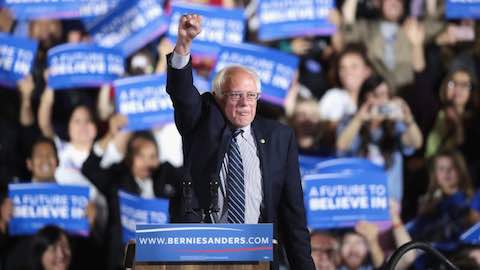
How Much Each Presidential Candidate Spent Per Vote
by Jack Corrigan
Candidates spent a total of $840 million in the presidential primaries. Here's which candidate got the most bang for their buck
The presidential primaries don't cross many Americans' minds these days. It's convention season, and the public has turned its attention to the two nominees, strapping in for what promises to be an especially contentious general election.
But even as Donald Trump and Hillary Clinton prepare to duke it out between now and Nov. 8, most of the former presidential hopefuls remain financially mired in primary season.
The race for the White House isn't cheap. The most recent report from the Federal Election Commission shows that all of the former candidates are still paying off their presidential bids, even if they ended months ago. For instance, New Jersey Gov. Chris Christie's spent nearly $350,000 in June, though he dropped out of the race on Feb. 10.
The July FEC report covers campaign spending through June 30, the end of the primaries. Using this data and overall vote counts, Graphiq's politics site InsideGov ranked the candidates by financial efficiency, or how much they paid per vote. The spending totals used by InsideGov do not include money from super PACs. Though political action committees often back a specific candidate, they are technically separate entities from the campaign and cannot coordinate spending.
The candidates who paid the most per vote typically exited the race early, like Christie. These presidential contenders poured piles of money into early contests like Iowa and New Hampshire, but left the field soon after. Their vote totals took a dive after leaving the race, but some candidates still had a steady trickle of support. The people who stayed in the race the longest have the lowest cost per vote -- only one of the top five most efficient candidates dropped out before April.
Though the Trump campaign was noted for dominating the field with minimal spending, a different candidate got more bang for his buck than the billionaire businessman. Let's count down from the Republican who paid over $1,000 per vote to the candidate who spent only $4.57 on each supporter.
(*InsideGov estimated vote totals in the Iowa, Nevada, Maine, Alaska and Washington Democratic caucuses using voter turnout and proportional state delegates won. Those caucuses don't report the actual number of votes cast)
16. Lindsey Graham: $1,013.74 per vote
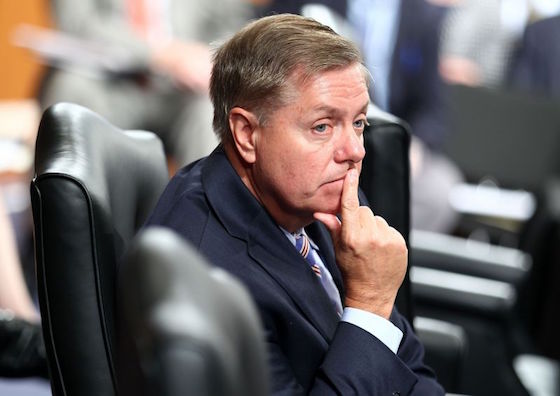
Total Spending: $5,700,248
June Spending: $15,952
Total Vote Count: 5,623
South Carolina Senator Lindsey Graham ended his bid for the Republican nomination in December 2015, a month before the primaries even began. Though he managed to pull together a handful of votes during the nomination process, the early departure contributed to his astronomical dollar-per-vote figure, which is about 3.5 times higher than the next on the list. After leaving the race, Graham made headlines as an outspoken critic of Donald Trump and Texas Sen. Ted Cruz.
15. Carly Fiorina: $290.67 per vote
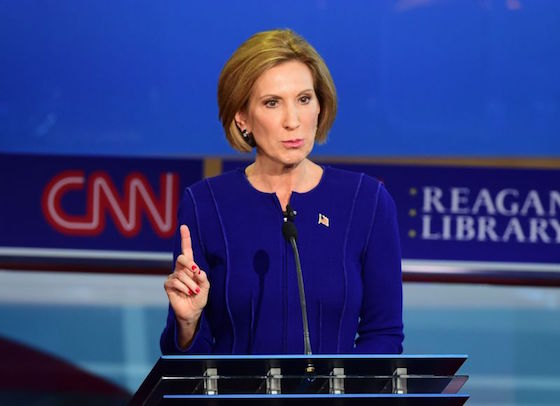
Total Spending: $11,254,591
June Spending: $76,110
Total Vote Count: 38,719
In September 2015, former Hewlett-Packard CEO Carly Fiorina looked like she could be a serious contender for the Republican nomination -- as the only woman in the GOP race, she brought diversity to a predominantly white, male Republican field. But her stock quickly tanked and she dropped out after receiving less than 2 percent of the vote in the Iowa caucus. She briefly reentered the race as Sen. Ted Cruz's pick for vice president, but he withdrew his bid a few weeks later.
14. George Pataki: $273.68 per vote
Total Spending: $535,040
June Spending: $450
Total Vote Count: 1,955
Former New York Gov. George Pataki attended the first few GOP "undercard" debates, but like Sen. Lindsey Graham, he quietly left the race over a month before the Iowa caucus. However, Pataki ran a much less expensive campaign, so his dollar-per-vote total stayed much lower than Graham's.
13. Rand Paul: $168.19 per vote
Total Spending: $12,253,696
June Spending: $70,941
Total Vote Count: 72,856
Many believed Sen. Rand Paul would cash in on the Libertarian support that bolstered his father, Rep. Ron Paul, in the 2008 and 2012 Republican primaries. He didn't. The Kentucky Republican's campaign never got off the ground, and he became one of the first candidates to drop out after the Iowa caucus.
12. Chris Christie: $151.23 per vote
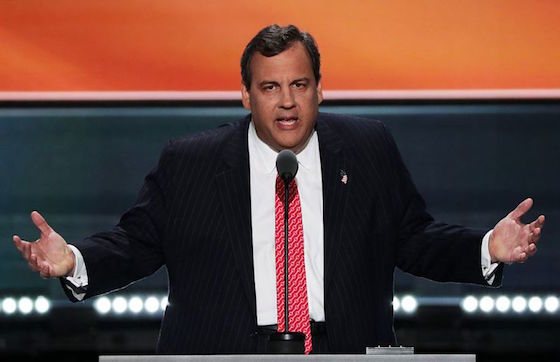
Total Spending: $8,702,317
June Spending: $348,393
Total Vote Count: 57,545
Like Sen. Rand Paul, New Jersey Governor Chris Christie came into the 2016 race with high expectations. A red governor from a blue state, Christie's handling of Hurricane Sandy and involvement in the George Washington Bridge scandal made him a household name well before the 2016 race. However his campaign floundered, and Christie dropped out after the New Hampshire primary and endorsed Donald Trump weeks later. He went on to serve as an adviser for Trump's campaign and made the shortlist for the nominee's vice president pick.
11. Jeb Bush: $126.70 per vote
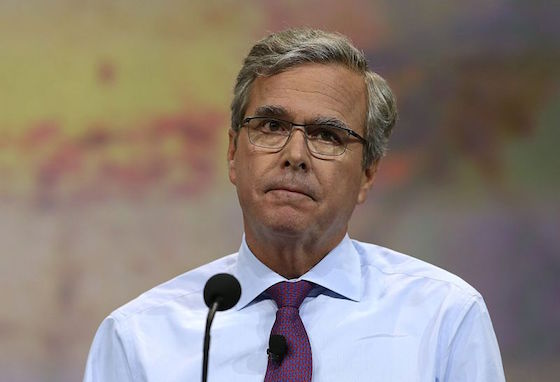
Total Spending: $35,409,278
June Spending: $216,212
Total Vote Count: 279,477
Former Florida Gov. Jeb Bush led the Republican field for much of 2015, but his awkward, gaffe-prone campaign faded to the background when the primaries began. Bush's moderate views on immigration and reserved style of campaigning kept him from getting as much attention as more bombastic candidates like Donald Trump and Ted Cruz. One of the most well-funded Republicans in the field, Bush demonstrated that sometimes money can only get a candidate so far.
10. Rick Santorum: $84.63 per vote
Total Spending: $1,405,989
June Spending: $19,789
Total Vote Count: 16,613
Former Pennsylvania Sen. Rick Santorum finished second in the 2012 Republican primary race, but he couldn't muster the same support in 2016. His barebones campaign kept his finances relatively efficient, but it may have negatively affected his publicity as well.
9. Mike Huckabee: $84.56 per vote
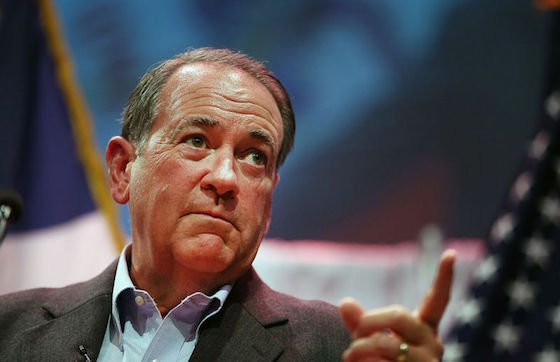
Total Spending: $4,314,704
June Spending: $454
Total Vote Count: 51,024
In his 2008 primary campaign, former Arkansas Gov. Mike Huckabee championed evangelical Republicans with his religiously charged speeches on Christian values and moral character. However, the former reverend's support was split among a number of other candidates in 2016. Though he won the Iowa caucus in 2008, he only got 1.8 percent of the vote this time around, and he left the race immediately after.
8. Ben Carson: $74.73 per vote
Total Spending: $62,510,067
June Spending: $85,665
Total Vote Count: 836,528
Retired neurosurgeon Ben Carson was the only candidate to lead Donald Trump in the polls between November 2015 and the end of primary season. Even though Carson amassed only seven delegates, he stayed in the race until March 1. Many wondered why he didn't drop out sooner, and before withdrawing, Carson himself questioned whether his own campaign was a scam.
7. Martin O'Malley: $56.42 per vote
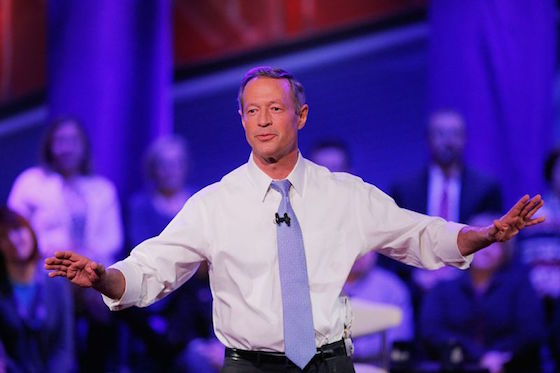
Total Spending: $6,237,028
June Spending: $5,848
Total Vote Count: 110,554
During the Democratic primary debates, former Maryland Gov. Martin O'Malley had a tough time wresting the spotlight from Hillary Clinton and Bernie Sanders. His short-lived campaign ended the night of the Iowa caucus.
6. Bernie Sanders: $17.77 per vote
Total Spending: $227,412,247
June Spending: $7,527,042
Total Vote Count: 12,797,701
Senator Bernie Sanders' "political revolution" made it much further in the race than anyone ever expected. Though the Vermont independent's grassroots campaign spent almost $230 million in the race against Hillary Clinton, it wasn't enough to overcome his deficit in the delegate count.
5. Marco Rubio: $14.59 per vote
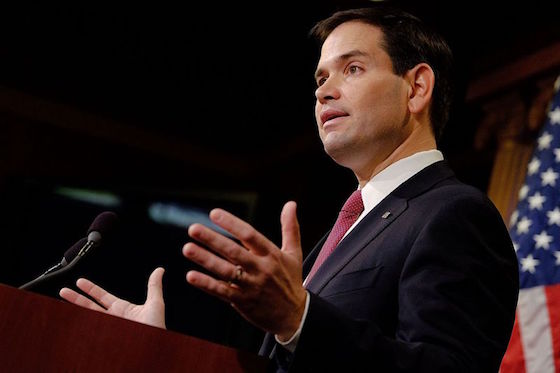
Total Spending: $50,841,303
June Spending: $180,775
Total Vote Count: 3,485,463
An early favorite of establishment Republicans, Florida Senator Marco Rubio jumped ahead of Donald Trump in prediction markets after an unexpectedly solid performance in the Iowa caucus. His prospects didn't last for long though. Rubio's support dwindled and he dropped out on March 15, after Trump beat him in his home state's primary by more than 18 points.
4. Hillary Clinton: $13.97 per vote
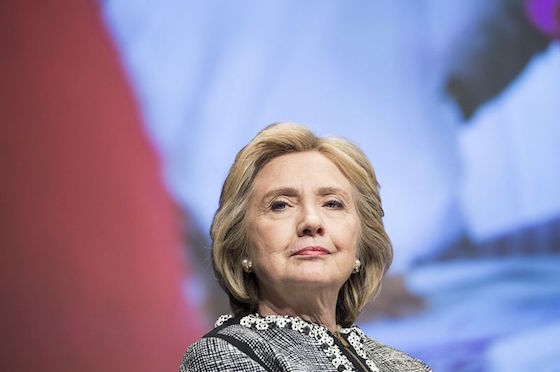
Total Spending: $230,172,869
June Spending: $34,460,572
Total Vote Count: 16,473,239
The Democratic nominee has raised over $270 million for her campaign -- more than any other candidate in the 2016 race. While the Republican race essentially ended in early May, the final Democratic primaries were still somewhat split between former Secretary of State Hillary Clinton and Sen. Bernie Sanders. This lowered Clinton's popular vote total and gave her a dollar-per-vote figure well above her general election opponent, Donald Trump.
3. Ted Cruz: $11.21 per vote
Total Spending: $86,285,610
June Spending: $490,288
Total Vote Count: 7,695,349
As the only other candidate to win multiple state primaries, Texas Senator Ted Cruz was one of the last men standing against Donald Trump. His campaign steadily raised money until Cruz conceded to the eventual nominee on May 3. He was booed last week during his speech at the Republican National Convention after failing to explicitly endorse Trump.
2. Donald Trump: $5.19 per vote
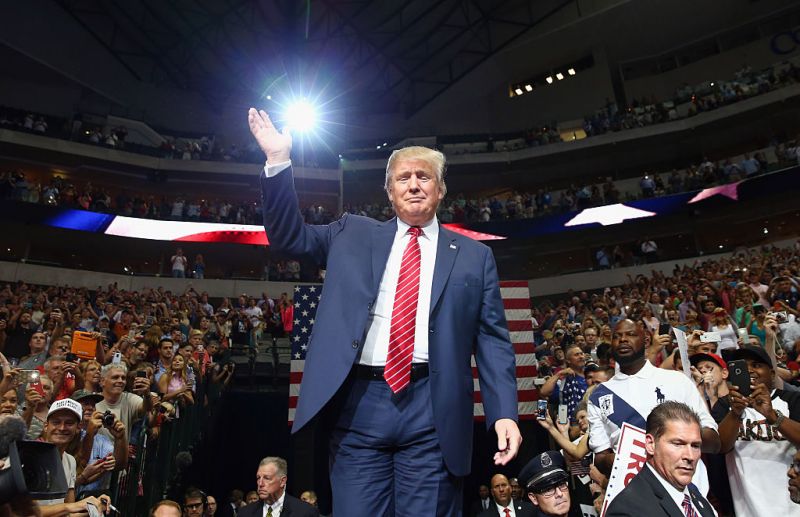
Total Spending: $71,087,144
June Spending: $7,800,248
Total Vote Count: 13,706,642
Donald Trump's campaign, half of which< he financed himself, got a lot of bang for its buck. His financial efficiency may be attributed to the media, which gave him substantially more coverage than any other candidate.
1. John Kasich: $4.57 per vote
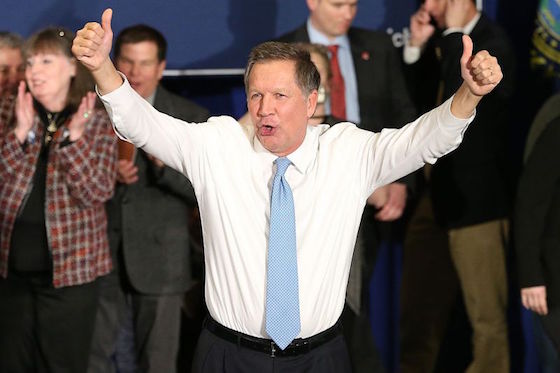
Total Spending: $19,335,673
June Spending: $501,210
Total Vote Count: 4,226,732
Ohio Gov. John Kasich won the title for the most financially efficient candidate. Though his only primary victory came in his home state, Kasich's candidacy endured until May 3, steadily raking in votes without much spending. His marathon approach gave him the lowest dollar-per-vote figure in the 2016 race.
More AMERICAN POLITICS ...
Receive our political analysis by email by subscribing here
AMERICAN POLITICS
WORLD | AFRICA | ASIA | EUROPE | LATIN AMERICA | MIDDLE EAST | UNITED STATES | ECONOMICS | EDUCATION | ENVIRONMENT | FOREIGN POLICY | POLITICS
Politics: "How Much Each Presidential Candidate Spent Per Vote"